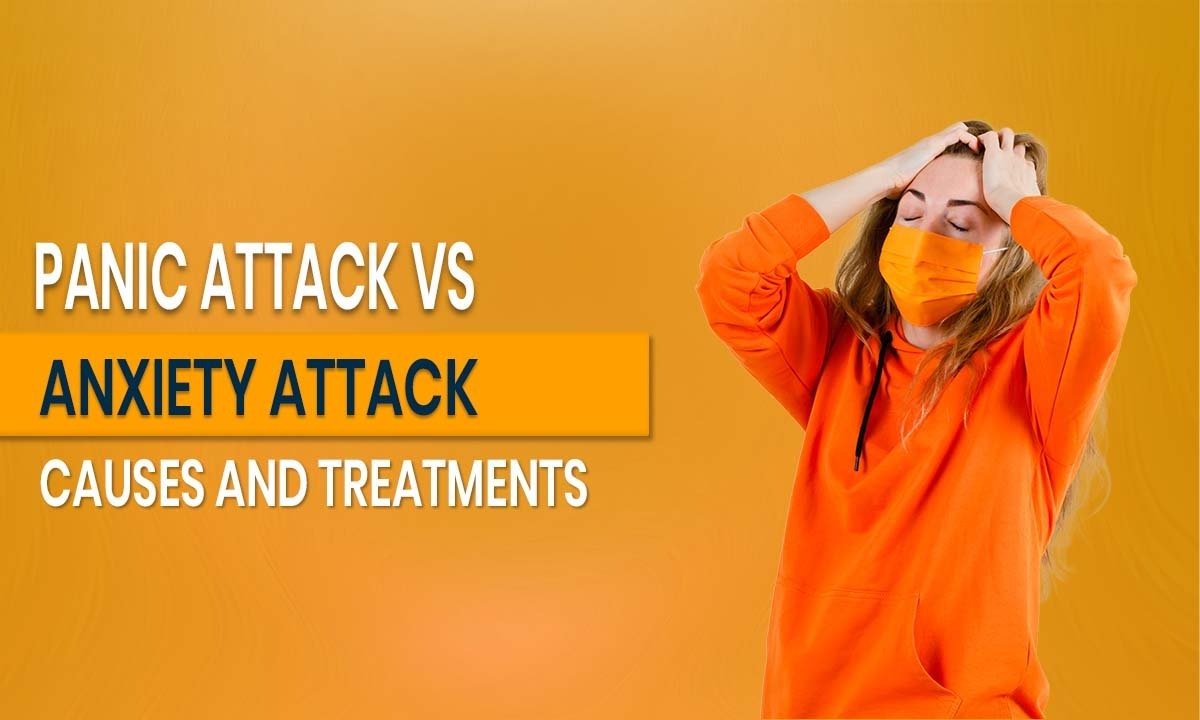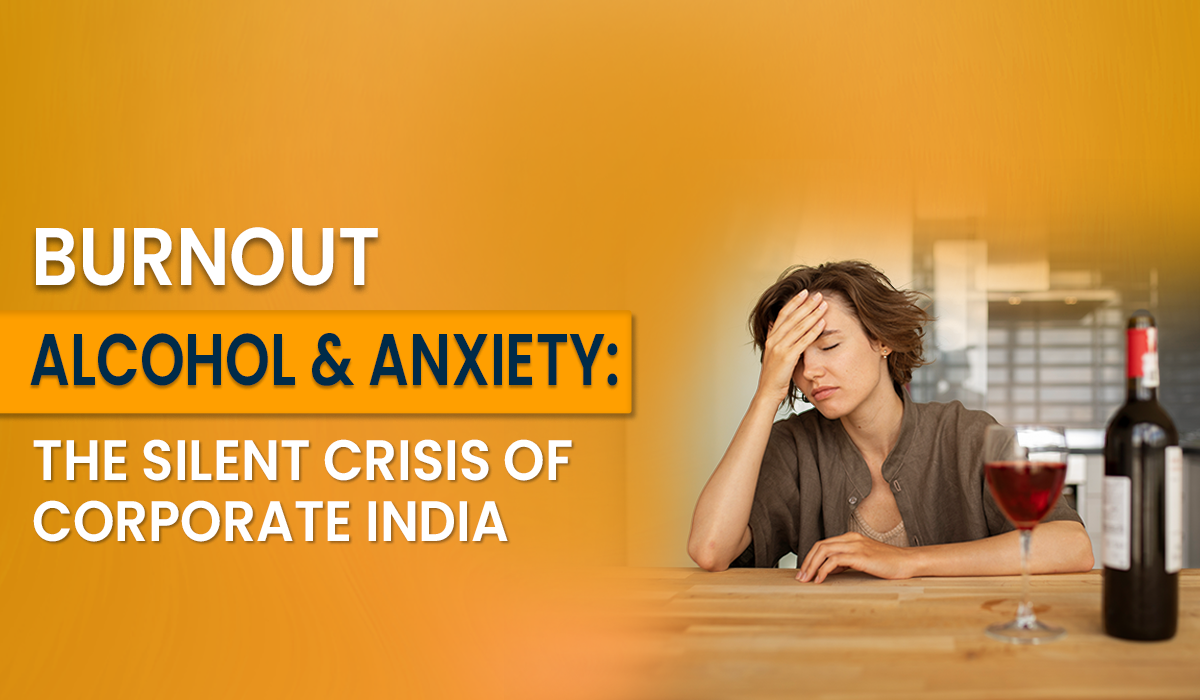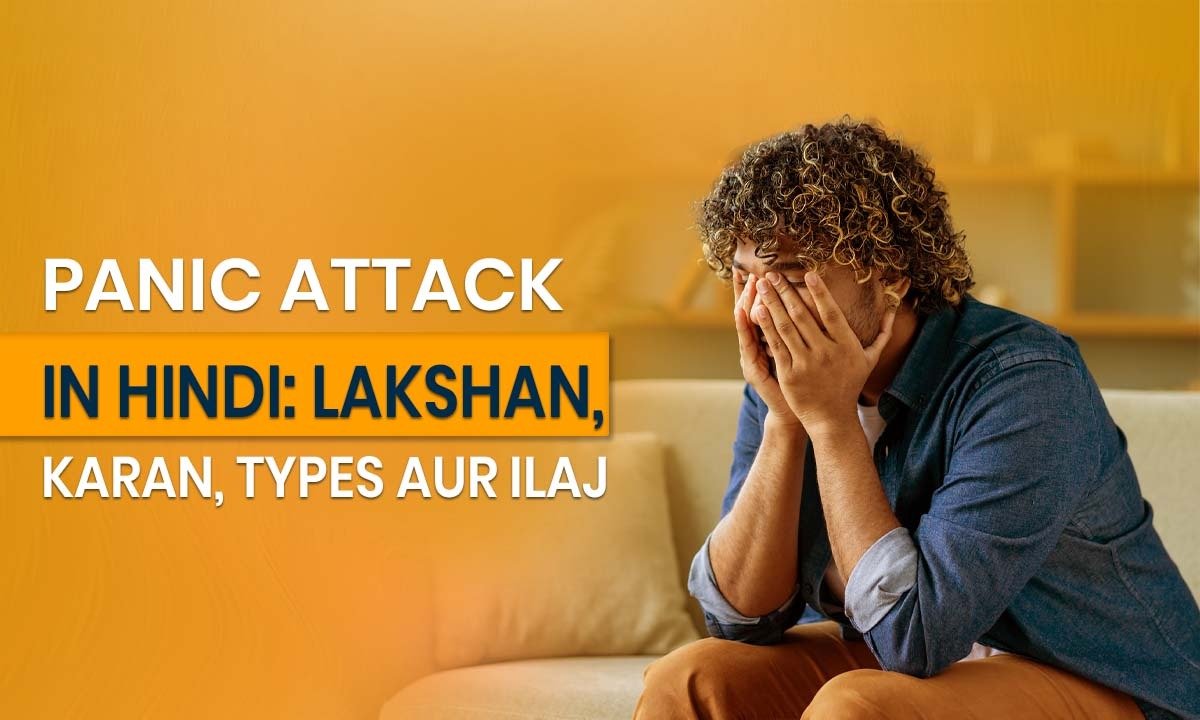Many people ask: “Am I having a panic attack or just anxiety?”
Although both can feel overwhelming, they are different conditions — and understanding those differences helps you choose the right treatment.
Let’s break it down clearly.
What Is a Panic Attack?
A panic attack is a sudden and intense surge of fear that appears without warning. It usually peaks within 10–20 minutes.
Common Symptoms of a Panic Attack:
- Rapid heartbeat
- Shortness of breath
- Chest pain
- Sweating
- Dizziness
- Feeling of losing control
- Fear of dying
Panic attacks can feel life-threatening, but they are not dangerous. However, repeated episodes may lead to panic disorder.
What Is an Anxiety Attack?
An anxiety attack (not a formal DSM-5 diagnosis) usually develops gradually in response to stress, pressure, or worry.
Common Symptoms of Anxiety:
- Persistent worry
- Restlessness
- Muscle tension
- Irritability
- Sleep disturbance
- Difficulty concentrating
Unlike panic attacks, anxiety builds over time and is usually linked to a specific trigger (work stress, exams, relationships, health concerns, etc.).
Panic Attack vs Anxiety Attack: Key Differences
| Feature | Panic Attack | Anxiety Attack |
| Onset | Sudden and unexpected | Gradual build-up |
| Trigger | Often no clear trigger | Usually linked to stress or worry |
| Intensity | Very intense and overwhelming | Mild to moderate, can become severe |
| Duration | Peaks within 10–20 minutes | Can last for hours or even days |
| Physical Symptoms | Rapid heartbeat, chest pain, dizziness, shortness of breath, sweating | Muscle tension, restlessness, fatigue, mild rapid heartbeat |
| Emotional Symptoms | Fear of dying, losing control, impending doom | Excessive worry, irritability, nervousness |
| DSM-5 Recognition | Recognized clinical condition (Panic Disorder) | Not a formal DSM-5 diagnosis (often linked to anxiety disorders) |
| Frequency | Can occur unexpectedly and repeatedly | Usually related to ongoing stress |
| After-Effect | Exhaustion and fear of future attacks | Persistent worry continues |
| Treatment Approach | CBT, medication (SSRIs), breathing techniques | CBT, stress management, lifestyle changes, medication if needed |
Understanding this difference helps determine the right treatment path.
What Causes Panic Attacks and Anxiety?
There isn’t a single cause. Common contributing factors include:
Psychological Triggers:
- Chronic stress
- Trauma or past abuse
- High-pressure work environments
- Unresolved emotional issues
Biological Factors:
- Family history of anxiety disorders
- Hormonal fluctuations (more common in women)
- Brain chemistry imbalance
Lifestyle Triggers:
- Caffeine
- Alcohol or substance use
- Lack of sleep
- Poor stress management
Is Panic Disorder Dangerous?
Panic disorder is not life-threatening, but untreated panic attacks can:
- Reduce quality of life
- Lead to avoidance behaviors (agoraphobia)
- Increase risk of depression
- Trigger substance misuse
Early treatment prevents long-term complications.
Best Treatment for Panic Attacks & Anxiety
The most effective treatment combines therapy, lifestyle changes, and sometimes medication.
1️⃣ Cognitive Behavioral Therapy (CBT)
CBT is the gold standard. It helps:
- Identify irrational fears
- Break the panic cycle
- Reduce anticipatory anxiety
2️⃣ Medication (If Required)
- SSRIs and SNRIs for long-term management
- Short-term anti-anxiety medications (under supervision)
3️⃣ Lifestyle Adjustments
- Regular exercise
- Mindfulness and breathing exercises
- Limiting caffeine and alcohol
- Sleep regulation
Can Panic Attacks Be Stopped Forever?
With proper treatment and professional support, panic attacks can be significantly reduced or eliminated. The key is early intervention and consistent therapy.
Trying to manage severe panic or anxiety alone often prolongs suffering.
When Should You Seek Professional Help?
You should consult a mental health professional if:
- Panic attacks occur repeatedly
- Anxiety interferes with work or relationships
- You avoid situations due to fear
- Sleep is regularly disturbed
- Alcohol or substances are used to cope
Professional support makes recovery faster and more sustainable.
Don’t Ignore the Signs – Athena Luxus Can Help
At Athena Luxus, we provide structured, confidential, and personalised mental health support for:
- Panic disorder
- Anxiety disorders
- Stress-related conditions
- Dual diagnosis (anxiety + addiction)
Our approach combines psychiatric expertise, therapy-led treatment, and holistic recovery support in a discreet and compassionate environment.
If anxiety or panic is affecting your daily life, early support can prevent long-term complications.
📞 Call Athena Luxus at +91 9718921212
Take the first step toward emotional balance and long-term well-being.



